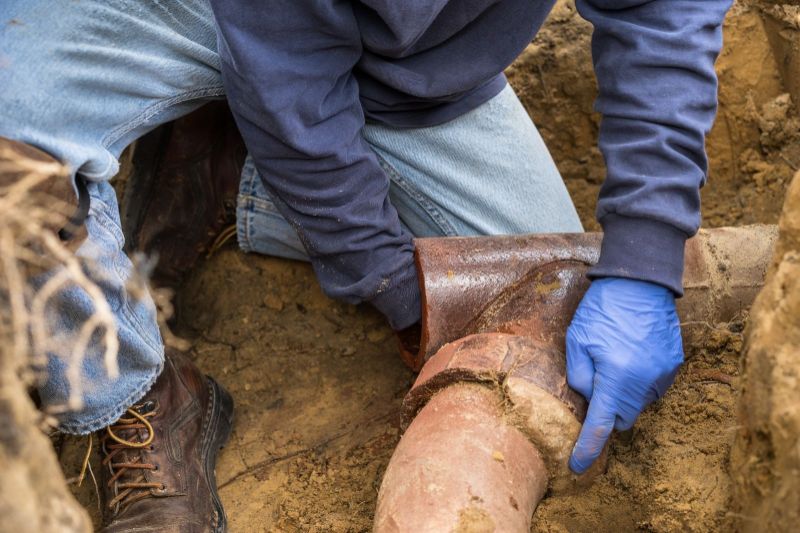Sewer line issues can be a major inconvenience for homeowners. Not only can they be costly to repair, but they can also lead to serious damage if not addressed promptly. So, how do you know when it's time to repair or replace your sewer line? Here are a few key indicators to look out for:
- Frequent clogs or backups: If your sewer line is constantly getting clogged or backing up, it could be a sign that there is a blockage or damage in the line. This could be caused by tree roots, debris, or even a collapsed pipe.
- Strange odors: If you start noticing a foul smell coming from your drains, it could be a sign that there is a problem with your sewer line. This could be caused by a build-up of sewage or waste in the line, which can produce a strong, unpleasant odor.
- Slow drain times: If your drains are taking longer than usual to clear, it could be a sign that there is a blockage or damage in your sewer line. This can be caused by a variety of factors, such as debris, grease build-up, or even a collapsed pipe.
- Wet spots in your yard: If you start noticing wet spots or pools of water in your yard, it could be a sign that there is a leak in your sewer line. This could be caused by a crack or break in the pipe, which can allow sewage and waste to leak out into your yard.
- Unexpectedly high water bills: If you notice that your water bill is significantly higher than usual, it could be a sign that you have a leak in your sewer line. This could be caused by a break or crack in the pipe, which can allow water to escape and go unnoticed.
If you notice any of these issues, it's important to address them as soon as possible to avoid further damage and costly repairs. In some cases, a simple repair may be all that is needed to fix the problem. However, if the damage is severe or the line is too old, it may be necessary to replace the entire sewer line.
If you suspect that you may have a problem with your sewer line, it's important to contact a professional plumber as soon as possible. They will be able to assess the situation and recommend the best course of action to take. In some cases, they may be able to use a camera to inspect the line and identify the problem. In other cases, they may need to dig up the line to perform a more thorough inspection.
No matter what the issue is, it's important to address it promptly to avoid further damage and costly repairs. By keeping an eye out for these signs and contacting a professional plumber as soon as you notice any issues, you can ensure that your sewer line stays in good working order for years to come.
